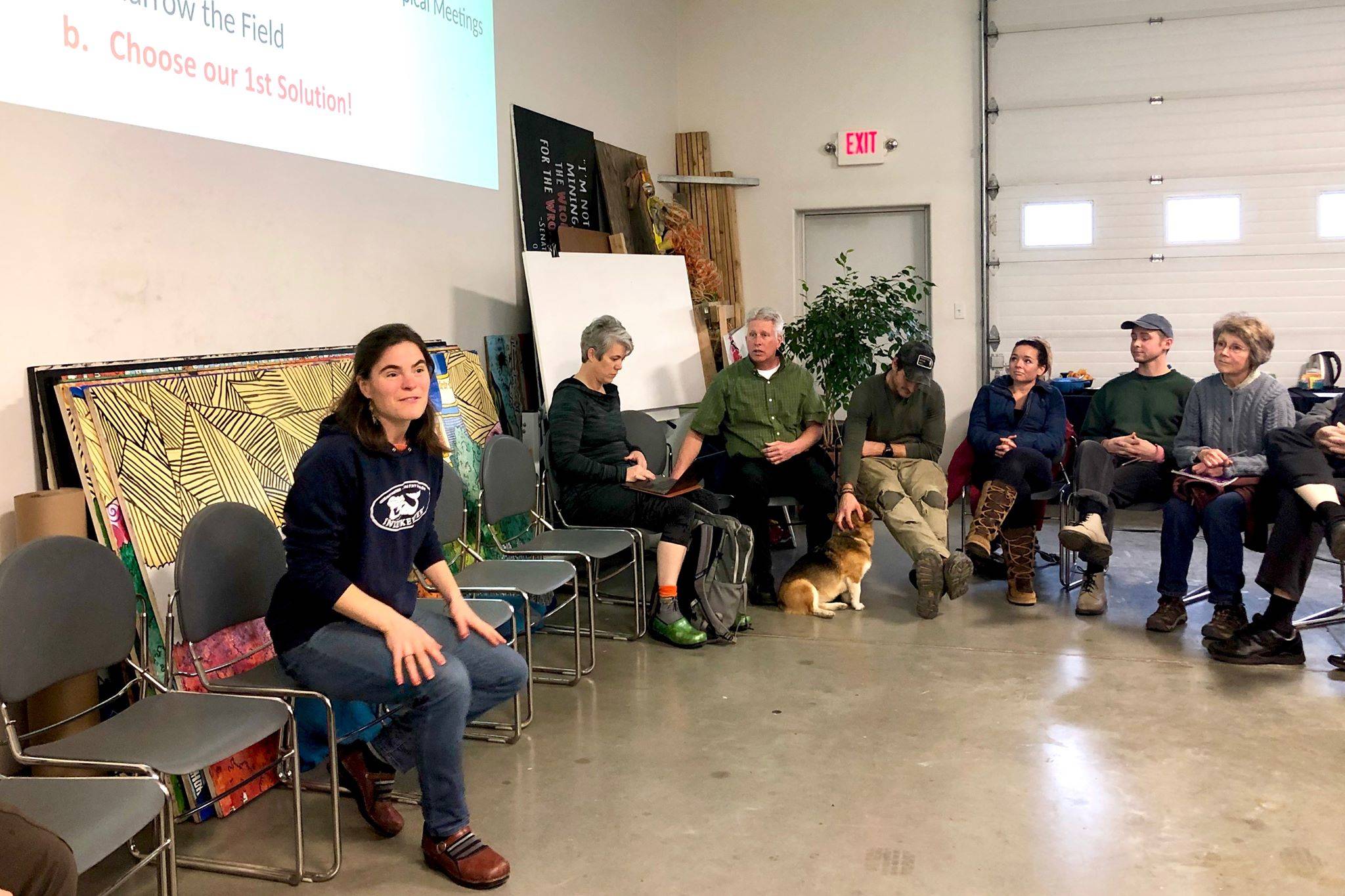After successfully launching three programs of their own, Cook Inletkeeper wants to help other communities fight climate change.
The nonprofit is a community-based organization aimed at protecting the Cook Inlet watershed and the ecosystems it supports. The group debuted their “Drawdown: Book to Action Climate Series” in 2019, which centered on bringing members of the community together to create solutions to climate change.
The series used the book “Drawdown: The Most Comprehensive Plan Ever Proposed to Reverse Global Warming” as a basic framework, with meetings structured around different chapters.
In that book, editor Paul Hawken consulted with scientists and policy experts to rank the 100 most effective solutions for reducing greenhouse gases. “Drawdown” refers not only to cutting greenhouse gas emissions, but to draw them from the atmosphere and reversing climate change instead of just stopping it.
At the end of the series, the group had identified projects they wanted to tackle as a community as a way to combat climate change. Three of their projects have already been launched and include composting efforts and a cooperative buying campaign for solar power on the peninsula.
Between the two programs, Cook Inletkeeper has successfully diverted more than 20,000 pounds of organic waste from landfills through their composting project and brought 485 kilowatts of renewable energy to the peninsula in the form of solar power.
Now, they want to help other communities do the same.
Cook Inletkeeper’s “Climate ActionKit,” which they launched last week, is an all-in-one guide to saving the planet through community action. The kit is meant to help communities do four things: reframe their thinking, gather their community, choose a solution and act on their ideas.
“The most impactful solutions for reversing climate change already exist,” the kit reads. “What’s needed is not new technology but social action to equitably scale sustainable technologies and practices we already have.”
The underlying motif of the ActionKit and of Cook Inletkeeper’s projects is the idea of “middle-out change.” It’s an alternative to “bottom-up change,” which refers to changes people make as individuals or households, and to “top-down change,” which refers to things like policy changes.
“Middle-out change is larger than what an individual could achieve in the scope of their household, but within reach of volunteers working with entities such as small businesses, churches, schools, town and borough or county governments, and rural electric co-ops,” the kit says.
In addition to providing an hour-by-hour breakdown of how different community meetings could be structured, the kit also explains how communities can identify and score projects they may want to pursue. It outlines how to put together a steering committee and tips on how to work out logistics like meeting space and child care for people who have kids.
In choosing a project to pursue, Cook Inletkeeper suggests communities see if it holds up to the “SMARTIE” standard, meaning see it if it is specific, measurable, achievable, realistic, timebound, inclusive and equitable.
“Sustainability is not a checklist that can be completed once and for all, but a continual process of adaptation,” the kit says in closing remarks. “Undertake this process with your community not only to act on the world’s most urgent problem, but also because leading change with your neighbors is worthwhile in itself.”
Cook Inletkeeper will host a virtual kickoff for the ActionKit on April 22. More information on Cook InletKeeper and their ActionKit can be found at inletkeeper.org.
The Alaska Department of Commerce, Community and Economic Development has said that evidence of climate change in Alaska can be seen in warmer temperatures that result in thawing permafrost, thinning sea ice and increasing wildfires. The U.S. Fish and Wildlife surface estimates that annual available water on the western Kenai Peninsula has declined 55% and that the Harding Icefield has decreased 11% in surface area over the last 50 years.
Reach reporter Ashlyn O’Hara at ashlyn.ohara@peninsulaclarion.com.

